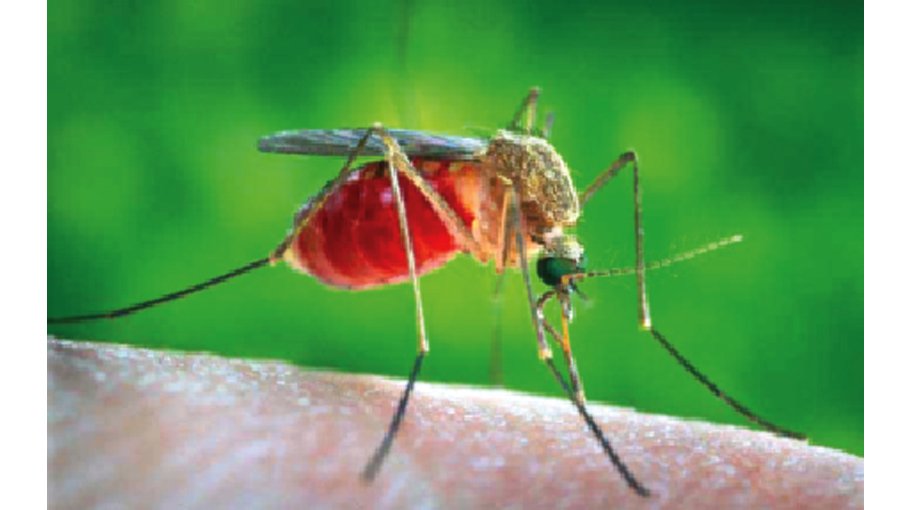Mosquito menace at its peak in city
Fogging, larviciding go in vain: Experts

Dhaka City dwellers have been facing severe mosquito menace for the last few weeks though both the city corporations have taken various initiatives in controlling growth in mosquito population.
Crores of taka are spent every year in the capital to destroy breeding grounds of mosquitoes, but to no avail and city dwellers are not getting any relief from the mosquito problem.
It is widely known that mosquito population have increased to a great extent, particularly in the last one week. As a result, mosquito repellents and killers like coil, spray, electric repellents and bats are widely used. Meanwhile, fogging with insecticides and larviciding have little effect on controlling the insect, experts said.
It is noticed that mosquitoes are on the rise from the mid-February when the winter has started to disappear. As the temperature rises, mosquitoes are also increasing.
Earlier usually mosquito menace increased before dusk. But now the situation is the same in the morning and evening, many city dwellers alleged.
City dwellers alleged that the budget is increasing year by year to control mosquitoes. Medicines are being changed from time to time to enhance mosquito killing missions.
In the current financial year, Dhaka North City Corporation (DNCC) has allocated Tk 122 crore and Dhaka South City Corporation (DSCC) Tk 47 crore for the mosquito eradication programmes.
Entomologist Dr Manjur Ahmed Chowdhury told Bangladesh Post, “The city corporation’s method of killing mosquitoes is not correct. As a result, the entire money is generally wasted. The fact is, dengue is now naturalized.”
“Besides, lack of good governance, mismanagement and lack of public accountability are the reasons why mosquitoes are not being controlled,” said Dr Manjur, who was the former President of the Zoological Society of Bangladesh.
Meanwhile, the city dwellers have complained that normal activities are not going on inside and outside the house due to the mosquito menace for the last few weeks.
At the same time, panic of dengue and chikungunya attack is also prevailing in city.
Meanwhile, the Local Government, Rural Development and Cooperatives (LGRD) Minister Tajul Islam announced a comprehensive action plan to tackle mosquitoes across the country, aiming to prevent dengue and other mosquito-borne diseases. The minister announced at the maiden session of the 12th Jatiya Sangsad recently.
He also said that the local government division is actively implementing mosquito control measures across the country including the city corporations to prevent dengue and other mosquito-borne diseases.
Chairman of the standing committee on mosquito control of Dhaka North City Corporation (DNCC) Councilor Dewan Abdul Mannan, told Bangladesh Post, “Till now our main focus was controlling Aedes mosquitoes. But now we have seen that the Culex mosquito has been increasing for the last few days. Accordingly, we have taken a 15-day programme from Sunday to control all types of mosquitos.”
In the meantime, at least 1,705 people died of dengue in the country in 2023. In addition, 32,1179 people were infected with dengue in 2023, according to the latest figure released by the Directorate General of Health Services (DGHS).
At the end of January 2023, DNCC Mayor Atiqul Islam, visited the Miami-Dade County Authority in the State of Florida, USA.
At that time Atiqul Islam said, “We have been using the wrong method for so long. Mosquitoes are not destroyed, but money is wasted. Therefore, we want to set up a lab to identify mosquito species at DNCC as soon as possible. We want to keep DNCC mosquito-free by successful implementation of the knowledge gained from Miami.”
But the fact is DNCC has been using the same old method for the last 1 year to control the mosquitoes.
Monirul Islam, a resident of the Mirpur 12 area, said “There is no peace in the day and night due to mosquito menace. Many people have to place mosquito nets to sleep during the day. As the evening goes, mosquito menace increases many times.”
Dr Kabirul Basar, an entomologist from Jahangirnagar University, said There are two types of mosquitoes. At present, 99 per cent of Dhaka’s mosquito population consists of Culex mosquitoes, it’s the 1 per cent of Aedes mosquitoes that pose a public health threat.
“Culex and Aedes mosquitoes should be treated separately throughout the year. There will be dengue management and culex management,” he added.
The mosquito problem is particularly acute in Banasree, Khailgaon, Motijheel, Mirpur, Pallabi, Dholaikhal, Gendaria, Meer Hazaribagh, Jatrabari, Dholpur, Shyampur, Kamrangirchar, Sutrapur, Mohammadpur, Moghbazar, Maniknagar, Basaboo, Kamalapur, Mugda, Sayedabad, Rampura, Badda, Mohakhali, Kuril, Hazaribagh and Rayerbazar and adjacent areas.
Osman Gani, a security guard of a house in Banasree area, said “Mosquito menace usually intensifies before dusk. But now the situation is the same in the morning and evening. Nowadays I have to light mosquito coil in the daytime too. After the evening the mosquito menace is intolerable.”
Apart from this, residents of the city’s elite areas Gulshan, Banani, Baridhara, Uttara and Dhanmondi have also faced mosquito problems.
The majority of the elite neighbourhoods are equipped with mosquito net at the window of the flat. But there is no escape. From the ground floor to the bottom of the 20th floor mosquito problem is everywhere.
Ruhul Mithu of the Bangshal area of the old Dhaka said there is no need to blow smoke to kill mosquitoes. There is no benefit in blowing these smokes. If the city’s roads, drains and sewers were cleaned regularly, mosquitoes would be reduced.
During a seminar, Brigadier General Imrul Kayes Chowdhury, chief health officer of Dhaka North, said unplanned urban growth creates mosquito breeding grounds, people need more awareness about preventing mosquito breeding, neglected rooftop gardens and water-filled basements attract mosquitoes, and limited data on dengue cases hinders targeted control efforts.



